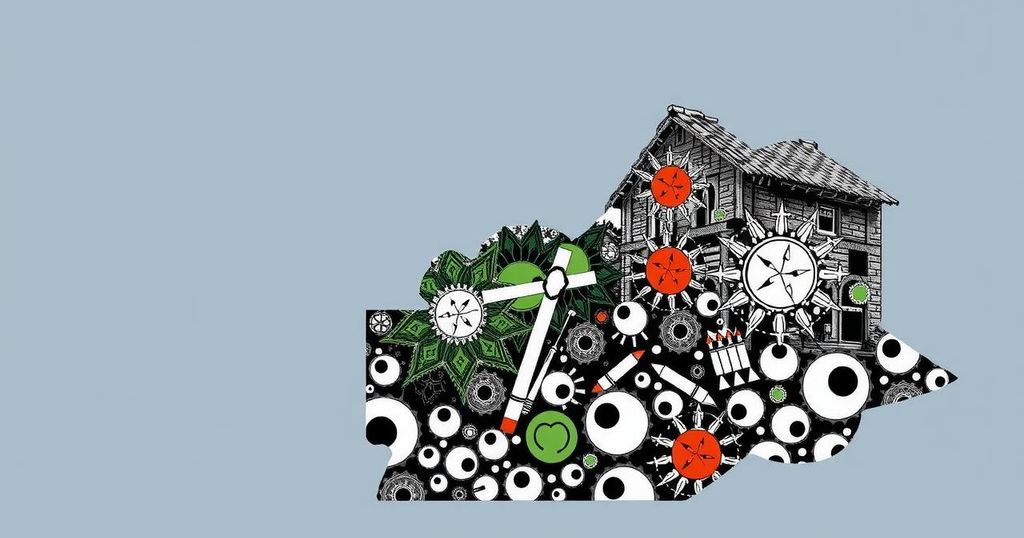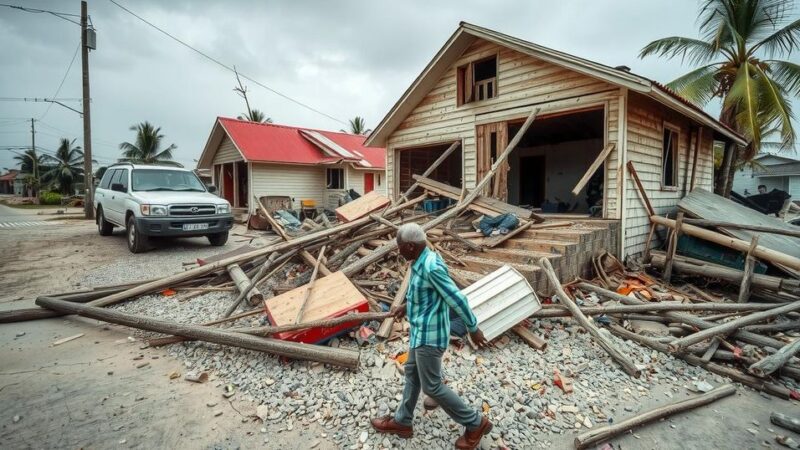This article discusses the need for integrating culture and heritage into disaster risk management and climate change adaptation in Southern Africa, particularly in Lesotho. It highlights the threats posed by climate-related hazards to cultural assets and their role in promoting resilience. The collaboration between UNESCO and national partners aims to establish evidence-based strategies that enhance community involvement and sustainability in addressing these challenges.
The integration of culture and heritage into disaster risk management (DRM) and climate change adaptation (CCA) strategies in Southern Africa, particularly in Lesotho, is critical due to the increasing threats posed by climate-induced hazards. Natural disasters, such as tropical cyclones, not only endanger cultural heritage but also disrupt the transmission of cultural practices and biodiversity, which are vital assets for sustainable socio-economic development in the region. Although there is an acknowledgment of these threats, actionable strategies remain limited, placing heritage at risk along with the communities dependent on it.
The rich cultural and natural diversity of Southern Africa positions it uniquely within the global context of heritage preservation. Culture and heritage serve as important resources for fostering resilience against disasters; however, this potential is yet to be fully explored and integrated within current DRM and CCA frameworks. Understanding the complex interplay between environmental challenges and cultural preservation necessitates a multi-dimensional approach that encourages community involvement and utilizes indigenous knowledge.
The report prepared by the UNESCO Regional Office for Southern Africa, in partnership with national cultural bodies, illuminates the intersections between culture, heritage, and environmental resilience. It emphasizes the necessity for a nuanced understanding of these relationships to identify opportunities for integrating heritage into climate action mechanisms effectively. This integration can enhance the sustainability of disaster response initiatives, ensuring that vulnerable communities can contribute to and benefit from adaptive strategies.
Moving forward, it is essential to cultivate a cohesive narrative that recognizes the role cultural assets can play in socio-economic development while ensuring their protection against climate threats. This requires evidence-based policy development and additional research efforts to strengthen the linkages between cultural heritage, community resilience, and sustainable disaster risk management practices in Southern Africa, particularly in Lesotho. By prioritizing these aspects, nations can bolster their capacity to withstand and adapt to the myriad threats posed by climate change and ecological degradation.
The topic at hand addresses the pressing need to evaluate how culture and heritage can be integrated into disaster risk management (DRM) and climate change adaptation (CCA) strategies in Southern Africa, focusing on Lesotho. The region is increasingly facing climate-related threats that not only endanger unique cultural identities but also disrupt environmental systems upon which local communities rely. As tourism and cultural industries are closely tied to heritage, understanding and safeguarding these facets becomes vital for sustainable development and community enhancement. The acknowledgment of these connections can facilitate more robust DRM and CCA strategies, making the protection of cultural heritage a significant aspect of broader climate resilience efforts.
In conclusion, the relationship between culture, heritage, and environmental resilience in Southern Africa is complex and multifaceted. The integration of cultural considerations into disaster risk management and climate adaptation frameworks presents an opportunity for enhanced community involvement and sustainable livelihoods. The ongoing efforts led by UNESCO and national partners underscore the critical need for cohesive policies that harmonize cultural preservation with environmental sustainability, ultimately fostering stronger, more resilient communities capable of navigating the challenges posed by climate change and natural disasters.
Original Source: reliefweb.int







